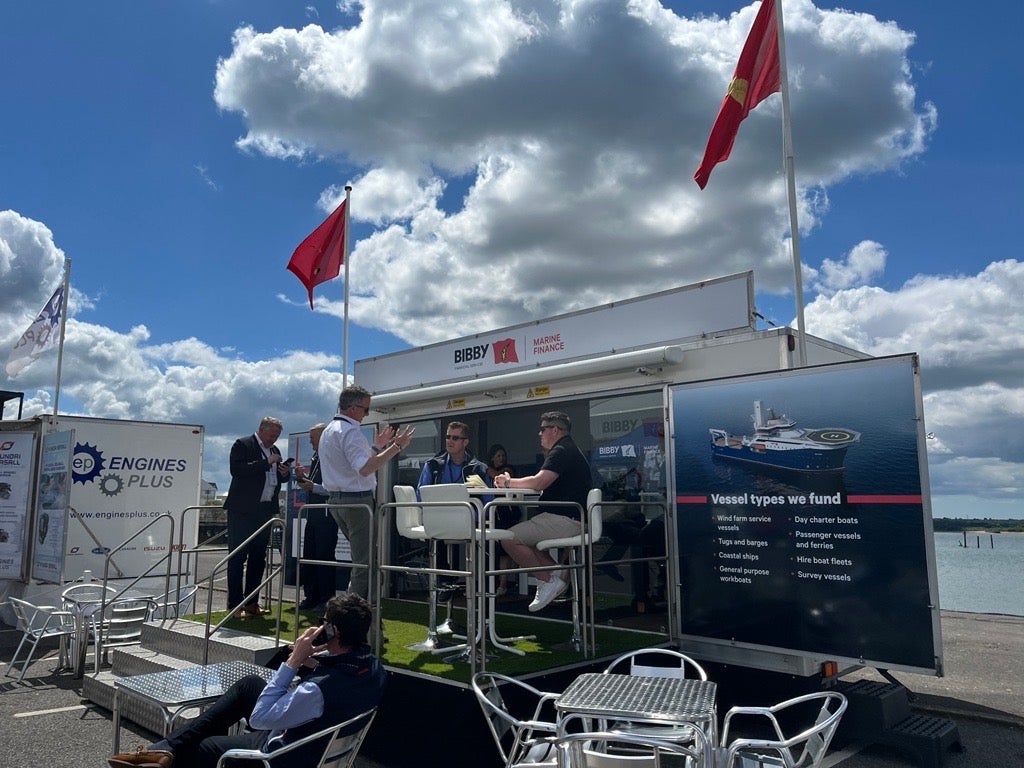
The banking parent of the Dutch lessor has identified its leasing arm as a source of growth for revenue and as a good way to spread the risk on its balance sheet. Brian Cantwell speaks to newly-appointed ABN Amro Lease UK managing director Richard de Keijzer about its growth strategy.
It’s been a busy half year for ABN Amro. In November its shareholder, the Dutch State, brought the Dutch parent bank back to the stock market. One of the strategic pillars of ABN AMRO and part of what the bank calls its IPO-story is the international growth of the bank in the markets it serves. Growth ambition is set both in private banking as well as in corporate banking, the latter including asset based finance, part of bank’s the ‘capability led’ approach.
To underpin this ambition, the Lease business of bank opened branches in London and Frankfurt in June and November 2014 respectively.
As announced in Leasing Life in February, the bank appointed Richard de Keijzer as managing director at the end of January 2016 after a competitive selection process, following the departure of George Ashworth for Virgin Money SME lending last year.
De Keijzer, who had been holding the post of interim managing director since Ashworth left in October 2015, has been with the Dutch bank for the past 15 years in various managerial banking roles, including trade & commodity finance, commercial banking and sector advisory.
"The growth of the leasing business in the UK is obviously a key part of the bank’s strategy: international growth within a moderate risk profile," he told Leasing Life at the time.
How well do you really know your competitors?
Access the most comprehensive Company Profiles on the market, powered by GlobalData. Save hours of research. Gain competitive edge.

Thank you!
Your download email will arrive shortly
Not ready to buy yet? Download a free sample
We are confident about the unique quality of our Company Profiles. However, we want you to make the most beneficial decision for your business, so we offer a free sample that you can download by submitting the below form
By GlobalData"Within the corporate strategy, there’s a lot of autonomy for local management; I’ve been with the bank for 15 years and I have a good idea of where the bank wants to go," he said.
Strategy
ABN Amro had its IPO at the end of last year, as 23% of ABN AMRO shares were sold. The expectation of its investors was that the bank would spread its risk profile via International expansion. ABN AMRO wants to grow its international business selectively in markets to 20 to 25% in 2017 at a group level, now 20%.
Currently, 80% of the bank’s revenue is generated in the Netherlands. ABN AMRO’s international growth ambitions are aimed at selective growth in markets where the bank is already present, to bring in more diversification and spread risks.
De Keijzer adds asset based finance, with its high capital efficiency and lower risk profile is highlighted strategically, especially in the Western European markets.
"Globally, our Corporate growth focus is on what we call ECT clients, (energy, commodities, and transportation). In Europe, the strategy is also geared towards Asset Based Lending."
"The goal is to become a recognized western European leasing company, and this is how our London branch links to the strategy group.
"In the last year, the lease book grew 43% in the UK, and the balance sheet grew to £430m. Also, the team grew 20% and expects further growth. That shows the execution on our ambitions, portfolio-wise and team-wise."
Market comparisons
ABN Amro’s growth strategy stemmed from the knowledge of the UK market’s potential, says de Keijzer.
"The market in the UK is around £40bn a year, similar to Germany, and ranges across sectors from trucks and trailers to yellow plant, containers and IT financing.
"There are differences between the Netherlands, UK and Germany, for example with regards to the end of a lease. Does the title of ownership ultimately pass to the end-user? Do they have an option to buy? Is there put- or a call option? is there the possibility of extending the lease? In some countries the lessee is not allowed to buy the asset at the end of the term, in other countries or other products, they are," says de Keijzer.
Germany and the UK are attractive because of their acquaintance of financing their capital expenditure via a lease, he adds.
"If you look at leasing in Europe, the lease quotas in Germany and the UK are rather high compared to the Netherlands, where a lot of companies finance their assets via a regular banking facility. In Germany and UK, companies are more used to financing their assets via a lease," says de Keijzer.
"The lease-approach is in fact a more customer centric approach than regular banking. Because of the flexibility we offer around ownership and the fact that we are able to take on residual value risk, we can truly customize the structure of the financing of our customers’ assets. Our customers really appreciate that approach. Besides that, the developments around Basel III and Basel IV will further drive focus on Asset Based Lending, which is exactly what we offer our customers.
Assets and coverage model
We focus on mid-market companies with a turnover above £25m, with a bias towards the transportation, manufacturing and the construction sector, says de Keijzer.
"What we focus on in the UK is mainly hard assets: trucks and trailers, yellow plant, cranes, containers, etcetera" he says.
"As an asset based lender in the UK we look at both the assets and also the counterparty, because our strategy is long-term relationships. That means we are able to provide committed facilities, which is an exception in the UK market."
The Dutch bank has worked on driving specific business in the UK by cooperating with a select group of introducers, besides having its sales teams focussing on direct sales within our specified markets.
"ABN Amro Lease UK works with a selected group of introducers, which in the UK totals around 15. This is all governed well and within the groups policies. We register all introducers; we perform all ‘know your customer’ research, do the compliance checks and we review them every year," says de Keijzer. "Our coverage model is twofold: we have our regional team, working across the UK, and we have a Wholesale & Structured finance team. They look at syndicated deals, club facilities and more structured deals.
All in all, with its high capital efficiency Lease is perfectly positioned to support the strategy of the bank."







